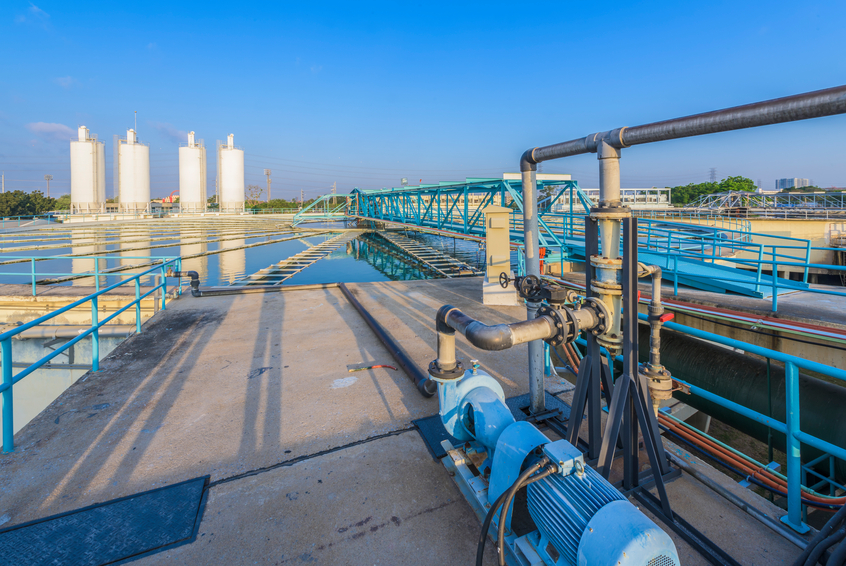District of Columbia Industrial and Ethics 20 PDH Discount Package 1
Courses in this Package
Planning and Design of Hydroelectric Power Plants (S04-002)
Detectors and Indicators for Industrial Facility Systems (D05-002)
Airport Snow and Ice Control Equipment (D03-006)
Process Controls for Industrial Facility Systems (D05-001)
Radiological Control: Radiological Standards (N02-004)
Code of Ethics for Engineers (LE1-001)

This online engineering PDH course presents a discussion of the general, architectural and structural considerations applicable to the design of hydroelectric power plant structures. It is intended for guidance on establishing minimum criteria in the planning and design of such structures.
The engineering of hydroelectric projects is a highly specialized filed, particularly the engineering design and operational activities.
This 4 PDH online course is applicable to civil, structural and geotechnical engineers, as well as design and construction personnel involved with the planning and design of hydroelectric power plant structures.
This PE continuing education course is intended to provide you with the following specific knowledge and skills:
- Location selection criteria of powerhouse and switchyard
- Types of powerhouse structures and type selection criteria
- General arrangement of powerhouse and location of main transformers
- Installation of powerhouse and switchyard equipment
- Interior and exterior architectural design
- Determination of structural requirements
In this professional engineering CEU course, you need to review the US Corps of Engineers Publication EM 1110-2-3001, "Planning and Design of Hydroelectric Power Plant Structures".
Upon successful completion of the quiz, print your Certificate of Completion instantly. (Note: if you are paying by check or money order, you will be able to print it after we receive your payment.) For your convenience, we will also email it to you. Please note that you can log in to your account at any time to access and print your Certificate of Completion.

This online engineering PDH course provides a basic understanding of instrumentation and control necessary for safe operation and maintenance of energy facilities and their support systems. In particular, this course describes the principles of construction, operation, and failure modes for various types of detectors including temperature detectors, pressure detectors, level detectors, flow and position indicators.
This 5 PDH online course is applicable to mechanical, industrial and nuclear engineers, construction and design personnel, technical staff and facility operators who are interested in gaining a better understanding of detector applications.
This PE continuing education course is intended to provide you with the following specific knowledge and skills:
- Learning the different types of equipment detectors and indication circuits
- Understanding the operation of equipment detectors and indication circuits
- Knowing the failure modes of equipment detectors and indication circuits
In this professional engineering CEU course, you need to review Modules 1 through 5 of the Department of Energy Publication DOE-HDBK-1013/1-92, "Instrumentation and Control".
Upon successful completion of the quiz, print your Certificate of Completion instantly. (Note: if you are paying by check or money order, you will be able to print it after we receive your payment.) For your convenience, we will also email it to you. Please note that you can log in to your account at any time to access and print your Certificate of Completion.

This online engineering PDH course provides guidance about the selection process for snow removal and ice control equipment.
The selection process involves three components: identifying the type of equipment for a specific task, determining the number of such equipment, and using the recommended equipment specification to better ensure that the equipment performs the required task.
Airport operators should maintain runways and taxiways if possible, to a “no worse than wet” condition during winter storms. To meet this challenge, the purchase of snow and ice control equipment will not only require significant financial commitments, but also require careful planning and a fundamental understanding of snow and removal equipment.
This 3 PDH online course is intended for industrial, mechanical and electrical engineers, as well as other technical personnel interested in learning more about the equipment used to control snow and ice at airports.
This PE continuing education course is intended to provide you with the following specific knowledge and skills:
- Understanding how snow and ice control equipment are classified to the specific task(s) that the equipment is designed to perform
- Familiarizing with the selection process for various snow removal and ice control equipment
- Learning about the different types of snow removal and ice control equipment
- Familiarizing with the operational standards and compliance testing process
Upon successful completion of the quiz, print your Certificate of Completion instantly. (Note: if you are paying by check or money order, you will be able to print it after we receive your payment.) For your convenience, we will also email it to you. Please note that you can log in to your account at any time to access and print your Certificate of Completion.

This online engineering PDH course provides a basic understanding of instrumentation and control necessary for safe operation and maintenance of energy facilities and their support systems. In particular, this course describes the principles of operation for control systems used in evaluating and regulating changing conditions in a process.
This 5 DH online course is applicable to industrial and nuclear engineers, construction and design personnel, technical staff and facility operators who are interested in gaining a better understanding of process controls.
This PE continuing education course is intended to provide you with the following specific knowledge and skills:
- Principles of control systems
- Control loop diagrams
- Types of control systems
- Controllers
- Valve actuators
In this professional engineering CEU course, you need to review Module 7, "Process Controls" of the Department of Energy Publication DOE-HDBK-1013/2-92, "Instrumentation and Control".
Upon successful completion of the quiz, print your Certificate of Completion instantly. (Note: if you are paying by check or money order, you will be able to print it after we receive your payment.) For your convenience, we will also email it to you. Please note that you can log in to your account at any time to access and print your Certificate of Completion.

This online engineering PDH course, organized into three parts, presents information about the U.S. Department of Energy’s radiological standards.
Part 1 – Administrative Control Levels and Dose Limits. To accomplish DOE's objective of maintaining individual doses well below regulatory limits, challenging numerical administrative control levels should be established below the regulatory limits to administratively control and help minimize individual and collective radiation dose. These control levels should be multi-tiered with increasing levels of authority required to approve higher administrative control levels.
Part 2 – Contamination Control and Control Levels. Control of radioactive contamination is achieved by using engineered controls and worker performance to contain contamination at the source, reducing existing areas of contamination, and promptly decontaminating areas that become contaminated.
Part 3 – Posting. Radiological postings are intended to alert individuals to the presence of radiation and radioactive materials and to aid them in controlling exposures and preventing the spread of contamination. The types of postings required vary based on the application.
This 2 PDH online course is applicable to industrial engineers, design and construction personnel, and other technical professionals who are interested in gaining a better understanding of radiological standards.
This PE continuing education course is intended to provide you with the following specific knowledge and skills:
- Understanding administrative control levels and dose limits
- Understanding contamination control and control levels
- Understanding posting provisions and standards
Upon successful completion of the quiz, print your Certificate of Completion instantly. (Note: if you are paying by check or money order, you will be able to print it after we receive your payment.) For your convenience, we will also email it to you. Please note that you can log in to your account at any time to access and print your Certificate of Completion.

This online engineering PDH course introduces engineers to the National Society of Professional Engineers Code of Ethics. The Code provides ethical guidance to engineers in their various and often simultaneously held roles as 1) guardians of public health, safety, and welfare 2) employees, 3) employers, and 4) providers of technical service to clients.
Engineers practicing their profession encounter not only technical issues but also ethical issues. Sometimes the latter issues are easy to resolve: applying everyday, common-sense notions of honesty, openness, responsibility, and lawfulness is sufficient to guide the engineer to the appropriate decision. At other times, however, matters are more complicated. In particular, knowing what to do when two or more duties or obligations conflict can be difficult. For example, an engineer's duty to his client or employer may conflict with the engineer's duty to the general public. Codes of ethics have been formulated to help engineers address these conflicts.
This 1 PDH online course is intended for all engineers who are interested in gaining a better understanding about how to protect and respect their engineering profession in the utmost manner.
This PE continuing education course is intended to provide you with the following specific knowledge and skills:
-
Learning the six Fundamental Canons of the Code
-
Learning the five Rules of Practice
-
Learning the nine Professional Obligations
-
Understanding the definition of "Sustainable Development"
-
Understanding the scope of the Supreme Court decision regarding NSPE, competitive bidding, and antitrust law
In this professional engineering CEU course, you need to review the course document "Code of Ethics for Engineers" published by the National Society of Professional Engineers (NSPE) on July 2007. This course document is reprinted by permission of the NSPE (www.nspe.org) and may be downloaded from the NSPE's website by clicking on Code of Ethics for Engineers, or by clicking on the link below.
Once you complete your course review, you need to take a multiple-choice quiz consisting of ten (10) questions to earn 1 PDH credit. The quiz will be based on this NSPE publication.
Upon successful completion of the quiz, print your Certificate of Completion instantly. (Note: if you are paying by check or money order, you will be able to print it after we receive your payment.) For your convenience, we will also email it to you. Please note that you can log in to your account at any time to access and print your Certificate of Completion.